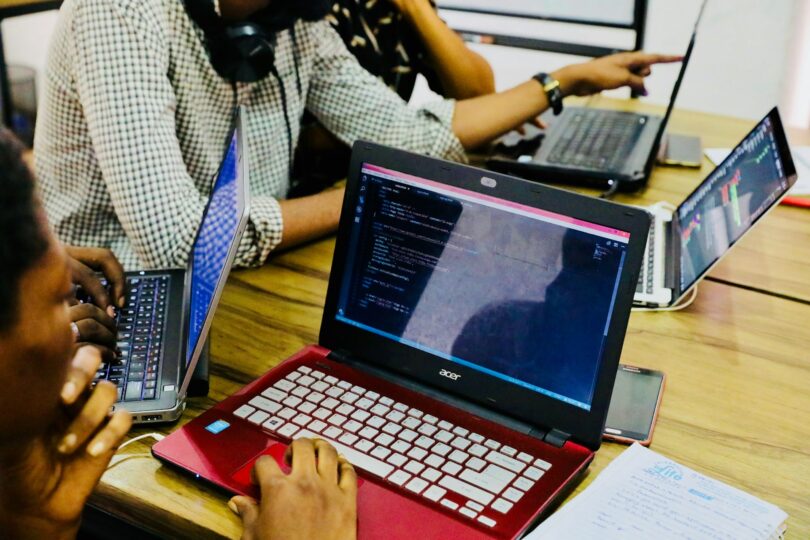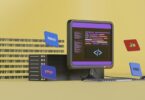Best Software Development Practices for Beginners
Software development is a powerful skill that opens doors to building applications, automating tasks, and solving real-world problems through code. However, for beginners, it can be overwhelming to navigate the world of programming without a clear understanding of the best practices that ensure clean, efficient, and maintainable code. This article outlines the most essential software development practices that every beginner should follow to start their journey on the right foot.
1. Start with a Strong Foundation in Programming Concepts
Before diving into best practices, it is crucial to understand the basic building blocks of software development.
Key Concepts to Master:
-
Variables and Data Types
-
Control Structures (if, loops)
-
Functions and Recursion
-
Object-Oriented Programming (OOP)
-
Data Structures (arrays, lists, maps, etc.)
Choose a beginner-friendly language like Python, JavaScript, or Java, and ensure you’re comfortable writing and running code independently.
2. Write Clean and Readable Code
Readable code is easier to debug, understand, and maintain — not just for you, but for other developers as well.
Tips for Clean Code:
-
Use meaningful variable and function names
-
Follow consistent indentation and formatting
-
Avoid overly long functions
-
Use comments where necessary, but don’t overdo it
Recommended Tools:
-
Use linters like
ESLint,Pylint, orPrettierto help enforce coding styles.
3. Practice Version Control
Version control systems like Git are essential tools for managing changes in your code over time.
Key Concepts to Learn:
-
Initializing a repository (
git init) -
Committing changes (
git commit) -
Branching (
git branch,git checkout) -
Merging and Pull Requests
Using GitHub or GitLab also helps you showcase your work to others, which is important when building a portfolio.
4. Understand the Software Development Lifecycle (SDLC)
Even as a beginner, having a basic grasp of the software development lifecycle helps in understanding how software projects move from idea to deployment.
Phases of SDLC:
-
Requirement Gathering
-
Planning
-
Design
-
Implementation
-
Testing
-
Deployment
-
Maintenance
This structured approach ensures that development is organized, predictable, and scalable.
5. Break Problems Down Before Coding
Before jumping into writing code, always take a moment to break down the problem into smaller, manageable pieces.
Use Problem Solving Techniques:
-
Write pseudocode
-
Draw flowcharts
-
Think in terms of input and output
This practice trains your mind to approach software challenges logically, making complex problems easier to tackle.
6. Comment and Document Your Code
While code should ideally be self-explanatory, beginners often skip documentation, making it harder to revisit old projects.
Best Documentation Practices:
-
Use inline comments to explain complex logic.
-
Add docstrings to functions and classes.
-
Maintain a
README.mdfile for every project, explaining what it does and how to run it.
7. Test Your Code Regularly
Testing ensures your code works as expected and helps catch bugs early in development.
Types of Testing:
-
Manual Testing – running the code and checking output manually.
-
Unit Testing – using frameworks like
unittest(Python) orJest(JavaScript) to automate tests. -
Integration Testing – checking if different modules work together.
Write tests early and update them as your code evolves.
8. Learn and Use Debugging Techniques
Bugs are an inevitable part of programming. Knowing how to debug effectively is a key skill for any developer.
Debugging Tips:
-
Use print statements to check variable values and flow.
-
Learn to use debuggers in your IDE (e.g., PyCharm, VS Code).
-
Use logs to trace issues in larger projects.
Patience and curiosity go a long way when tracking down bugs.
9. Follow DRY and KISS Principles
Two timeless software principles every beginner should know:
DRY – Don’t Repeat Yourself
Avoid duplicating logic or data. If a block of code is reused, turn it into a function or a class.
KISS – Keep It Simple, Stupid
Write simple, clear, and straightforward code. Avoid over-engineering.
Complexity adds bugs; simplicity adds clarity.
10. Use Libraries and Frameworks Wisely
Modern development is supported by countless open-source libraries and frameworks. While it’s great to use them, don’t become overly dependent without understanding the basics.
Smart Usage:
-
Understand what a library does before including it.
-
Avoid bloating your project with unnecessary dependencies.
-
Read the documentation.
Example: Use Python’s requests library to handle HTTP requests instead of writing raw sockets.
11. Work on Real Projects
Practice is key to mastery. Tutorials are great, but real learning comes when you try to build something from scratch.
Beginner Project Ideas:
-
A to-do list app
-
A simple calculator
-
A weather forecast app using an API
-
A personal blog site
Real projects help you encounter real problems, leading to deeper learning.
12. Collaborate and Learn from Others
Joining communities helps beginners grow faster and stay motivated.
How to Collaborate:
-
Contribute to open-source projects on GitHub.
-
Join forums like Stack Overflow, Reddit, or Discord programming groups.
-
Attend local or virtual coding meetups and hackathons.
Learning from peers accelerates your growth.
13. Use an Integrated Development Environment (IDE)
A good IDE boosts productivity and minimizes errors.
Popular IDEs:
-
VS Code – lightweight and extendable
-
PyCharm – ideal for Python development
-
IntelliJ IDEA – great for Java
-
Eclipse, NetBeans, Xcode, etc. for various other languages
Features like syntax highlighting, autocomplete, and debugging support make development much smoother.
14. Continuously Refactor and Improve Your Code
As you grow, revisit your old code and try to improve it. This not only helps you understand best practices but also shows your growth as a developer.
Refactoring Tips:
-
Simplify nested logic
-
Remove redundant code
-
Modularize large functions
Consistent refactoring leads to more efficient and cleaner codebases.
15. Be Mindful of Performance and Scalability
While this might seem advanced, even beginners can start thinking about how to write efficient code.
Simple Performance Tips:
-
Use the right data structures
-
Avoid unnecessary loops
-
Cache repeated calculations
Learn the basics of algorithm complexity (Big O notation) to write faster code.
16. Understand the Importance of Security
Security is often overlooked by beginners but is vital in software development.
Beginner Security Practices:
-
Validate all user inputs
-
Don’t expose sensitive information (like API keys)
-
Understand basic encryption and hashing
Always keep security in mind when developing any application.
17. Maintain a Coding Portfolio
Your portfolio is your best advertisement, especially if you’re self-taught or just starting.
What to Include:
-
GitHub repositories of your projects
-
Descriptions of the tools, languages, and techniques used
-
Screenshots or live links
You can even create a personal website or use platforms like Notion or Dev.to.
18. Stay Updated with Trends and Tools
Technology evolves rapidly. Staying informed helps you remain relevant.
How to Stay Updated:
-
Follow programming blogs and YouTube channels
-
Subscribe to newsletters like JavaScript Weekly
-
Experiment with new tools and frameworks
But don’t get overwhelmed — master the fundamentals first.
19. Seek Feedback and Be Open to Criticism
Feedback is a crucial part of learning. Share your code with more experienced developers and ask for their opinions.
Where to Get Feedback:
-
GitHub pull requests
-
Code review sessions
-
Online communities like Dev.to or Reddit
Constructive criticism improves your skills and confidence.
20. Never Stop Learning
Software development is a journey of continuous improvement. The more you code, the better you get.
Ways to Keep Learning:
-
Take online courses (Coursera, freeCodeCamp, Udemy)
-
Read books like Clean Code, The Pragmatic Programmer, or You Don’t Know JS
-
Join bootcamps or coding schools
Stay curious, and don’t let setbacks discourage you.
Conclusion
The road to becoming a skilled software developer is long but deeply rewarding. By following these best practices — from writing clean code to learning version control, debugging, testing, and collaboration — beginners can establish a strong foundation that will serve them throughout their careers. Always remember: start small, stay consistent, and never stop building.







